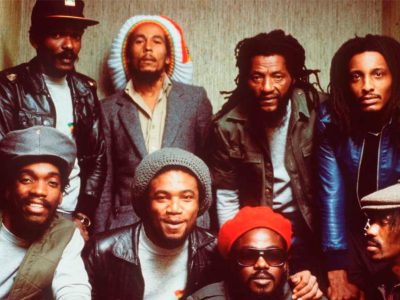Reggae, a genre originating in Jamaica, has become a global phenomenon recognised by UNESCO as a cultural institution. Its roots can be traced back to the social upheaval in post-war Jamaica, and it has grown exponentially over the years, encompassing various styles and influencing artists worldwide. The history of reggae is closely entwined with the story of Jamaica itself, demonstrating the power of music as a unifying force and a means of expression for the people.
The origins of reggae and the Jamaican influence
Mento: The birth of reggae
Mento, the Jamaican folk music that emerged in the 1940s and 1950s, is considered the precursor to reggae. With similarities to Calypso, which originated in Trinidad, Mento’s sound can be traced back to the convergent society of Jamaica. Over the years, the island was colonised by Spain, mainly in the 1500s and then by Britain in 1655. Enslaved people were transported from Africa to work on the country’s sugar plantations, resulting in a mix of cultures that contributed to the development of a uniquely Jamaican sound.
Characterised by the fusion of European and African traits, Mento’s origins lie in the enslaved work songs. These songs were created using guitar, rumba box, bongo, and banjo, and they were often accompanied by satirical lyrics about everyday life and verse repetition. This unique blend of influences laid the groundwork for the emergence of reggae.
Ska and rocksteady: The evolution of reggae
Reggae’s roots can also be traced back to the ska and rocksteady genres that emerged in Jamaica in the late 1950s and 1960s. Ska, born when urban Jamaican musicians began to play North American rhythm and blues, evolved from a combination of jazz, the rhythmic patterns of Jamaica’s spiritual Afro-Revival music, and American R&B. The ska era saw the growth of sound system dances in urban Kingston, with many young musicians being influenced by the music played at these events.
Rocksteady, a slower, more melodic genre, emerged as Jamaica faced widespread strikes and violence in the ghettos during the mid-1960s. The name “rocksteady” itself was an attempt to bring stability and harmony to a shaky social order. This new genre focused more on drums, bass, and social commentary, reflecting the growing influence of Rastafari philosophy in Jamaican popular culture.
From ska and rocksteady to reggae
Reggae music developed from ska and rocksteady in the late 1960s, retaining the basic rhythmic structures of these earlier styles while adding new elements and themes. The “one drop” drumming style, pioneered by Carleton Barrett of Bob Marley and the Wailers, became a cornerstone of the reggae sound. This style, characterised by an emphasis on the downbeat and a syncopated snare drum and hi-hat pulse, would later evolve into the “rockers” and “steppers” rhythms, further diversifying the genre.
The topical nature of many reggae songs, often focusing on themes of unity, hope, and resistance against oppression, helped the genre gain widespread popularity in Jamaica and internationally. Reggae’s association with the Rastafari movement, which preaches a return to African roots and the rejection of materialism and oppression, played a significant role in transforming Jamaica’s national identity during the post-independence period.
The global impact of reggae music
Reggae and the Rastafari Movement
Reggae’s close association with the Rastafari movement has been instrumental in its worldwide success. The Rastafari philosophy, rooted in the teachings of Jamaican-born Pan-Africanist Marcus Garvey and the belief in the divinity of Ethiopian Emperor Haile Selassie I, has been a driving force behind the themes of unity, resistance, and African heritage found in reggae music.
The influence of Rastafari can be seen not only in the lyrics of reggae songs but also in the unique sense of time and rhythm that defines the genre. Reggae music often conveys a sense of timelessness, reflecting the Rastafari belief in the interconnectedness of past, present, and future. This sense of time has been described as one of the key elements that set reggae apart from other musical styles, giving it a universal appeal that transcends cultural boundaries.
The international spread of reggae
Since its inception, reggae has spread to numerous countries worldwide, often incorporating local instruments and fusing with other genres to create new and unique sounds. Reggae en Español, for example, emerged in Central and South America as a blend of reggae with Spanish lyrics and local musical influences. Similarly, samba reggae, a fusion of Brazilian samba and Jamaican reggae, gained popularity in Brazil during the 1980s.
Reggae has also found a home in various European countries, with British reggae acts such as UB40, Aswad, and Steel Pulse achieving international success. The UK has been a key hub for the spread of reggae in Europe, with many Jamaican artists touring the region and a vibrant local reggae scene emerging in cities like London and Birmingham.
In Africa, reggae has been embraced as a symbol of unity and resistance, with artists from Nigeria, South Africa, and Zimbabwe incorporating the genre into their music. Bob Marley’s visit to Zimbabwe in 1980 played a significant role in boosting reggae’s popularity on the continent, and the genre continues to have a strong presence in African music today.
Reggae’s influence on mainstream music
Reggae’s impact extends beyond its genre, with many mainstream artists incorporating elements of reggae into their music. Pop icons such as Rihanna and Sean Paul have integrated reggae and dancehall influences into their sound, helping to bring the genre to a wider audience. Additionally, reggae’s distinctive offbeat rhythms and melodic bass lines have been adopted by various other musical styles, including punk, hip-hop, and electronic music.
Most notable reggae artists and their contributions
The Wailers: Pioneers of reggae
The Wailers, a band formed by Bob Marley, Peter Tosh, and Bunny Wailer in 1963, are the most well-known group to have transitioned through all three stages of early Jamaican popular music: ska, rocksteady, and reggae. Their music incorporated traditional mento influences, as well as elements of American jazz, rhythm and blues, and the distinctive sound of Rastafari Nyahbinghi drumming. The Wailers’ blend of social commentary, spiritual themes, and infectious melodies helped establish reggae as a powerful force in Jamaican and global music.
Bob Marley: The face of reggae
Bob Marley is undoubtedly the most famous and influential reggae artist of all time. His music, characterised by its strong social and political messages, brought international attention to the plight of the oppressed and the need for change. Marley’s songs, such as “One Love,” “Redemption Song,” and “Buffalo Soldier,” have become anthems for peace, love, and unity across the globe. His work also played a crucial role in popularising the Rastafari movement, spreading its message of hope and resistance to millions of people worldwide.
Other notable reggae artists
Many other reggae artists have made significant contributions to the genre, both in Jamaica and around the world. These include:
- Toots and the Maytals, whose 1968 single “Do the Reggay” is credited with coining the term “reggae” and introducing the genre to a global audience.
- Burning Spear, known for their deeply spiritual and politically charged music, with songs such as “Marcus Garvey” and “Slavery Days.”
- Black Uhuru, a Grammy Award-winning reggae band that emerged in the 1970s, featuring the distinctive voice of Michael Rose and the production talents of Sly and Robbie.
- Dennis Brown, often referred to as the “Crown Prince of Reggae,” who recorded over 75 albums and countless singles during his career, including the classic “Revolution.
- Gregory Isaacs, known as the “Cool Ruler,” whose smooth, romantic style made him a popular reggae artist in both Jamaica and internationally, with hits such as “Night Nurse” and “Love Is Overdue.”
- Culture, led by the charismatic Joseph Hill, whose socially conscious lyrics and captivating live performances have made them a reggae institution
- Lee “Scratch” Perry, a pioneering reggae producer and artist whose innovative studio techniques and eccentric personality have left an indelible mark on the genre
- King Stitt who pioneered the art of reggae toasting
The legacy of reggae music
Reggae has come a long way since its humble beginnings in Jamaica, evolving from a local musical style to a powerful global force for change and unity. Its impact can be felt in the countless artists and genres it has influenced and in the cultural and political movements it has inspired.
From its origins in Mento and Ska to its current status as a UNESCO-recognised cultural institution, reggae has proven to be a resilient and adaptable genre that continues to captivate audiences worldwide. As new generations of artists and fans discover the power and beauty of reggae music, its legacy will endure, and its message of unity, hope, and resistance will continue to resonate across borders and through time.





